
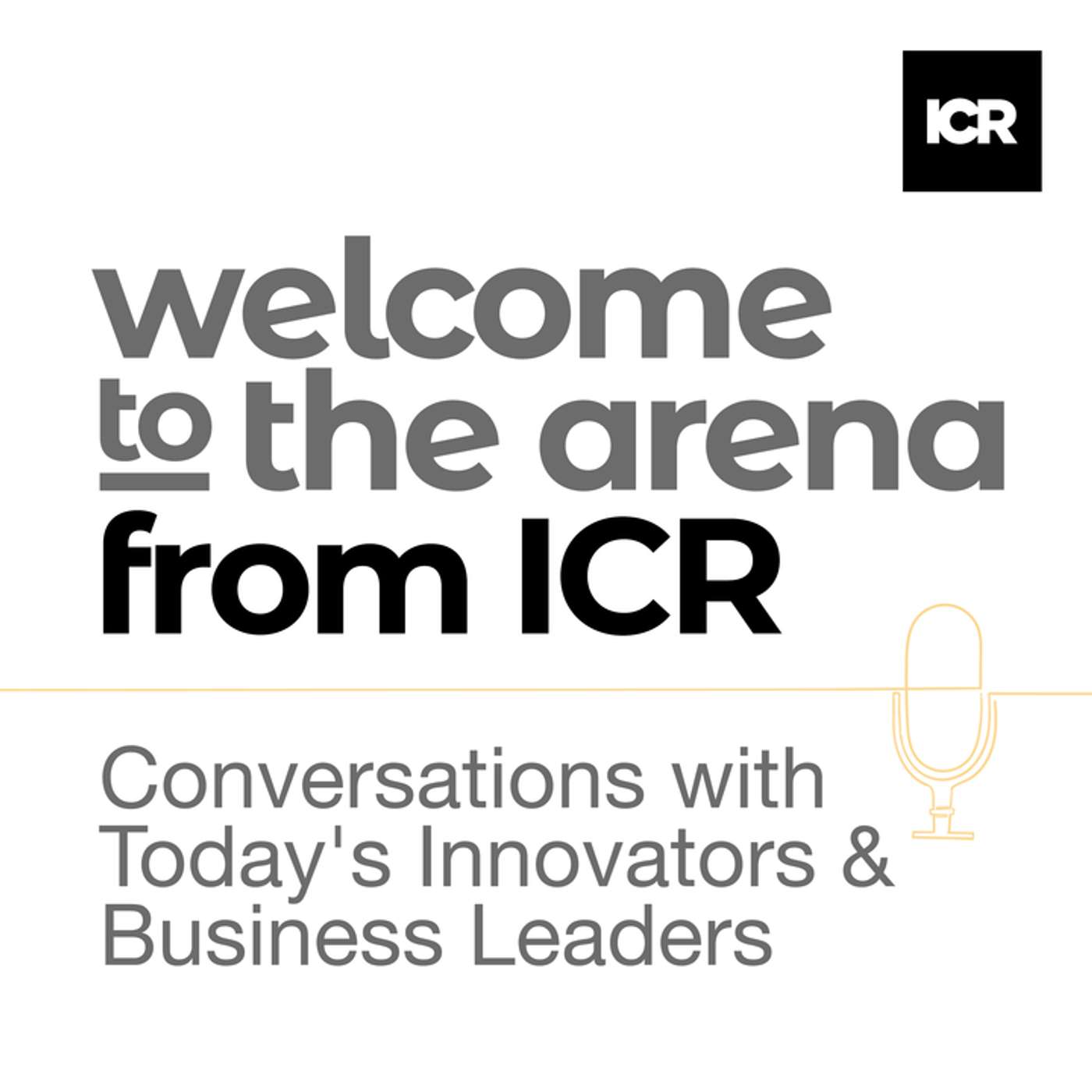
Welcome to the Arena from ICR – Conversations with Today's Innovators & Business Leaders
ICR
In the increasingly crowded and competitive corporate and financial ecosystem, it’s harder than ever for companies to break through the clutter and be heard. The media, investors, agenda-driven influencers, even customers and competitors, are defining your business story on their terms. Therefore, it is imperative that companies take control and proactively drive the conversation with stakeholders in an effort to build & maintain equity value.
In Welcome to the Arena from ICR, Co-Founder & CEO of ICR, Tom Ryan, interviews key business and financial players who influence the fate of public or aspiring public companies in the capital markets. As a former Wall Street Journal ranked sell-side equity analyst and the founder of one of the largest strategic communications firms in the world, Tom understands what it takes to navigate this complex environment.
This is a forum for CEOs, CFOs, institutional investors, sell-side analysts, financial journalists, private equity professionals and other financial community participants to share their stories and give advice in an open and candid conversation.
For more information, visit http://www.icrinc.com
In Welcome to the Arena from ICR, Co-Founder & CEO of ICR, Tom Ryan, interviews key business and financial players who influence the fate of public or aspiring public companies in the capital markets. As a former Wall Street Journal ranked sell-side equity analyst and the founder of one of the largest strategic communications firms in the world, Tom understands what it takes to navigate this complex environment.
This is a forum for CEOs, CFOs, institutional investors, sell-side analysts, financial journalists, private equity professionals and other financial community participants to share their stories and give advice in an open and candid conversation.
For more information, visit http://www.icrinc.com
Episodes
Mentioned books
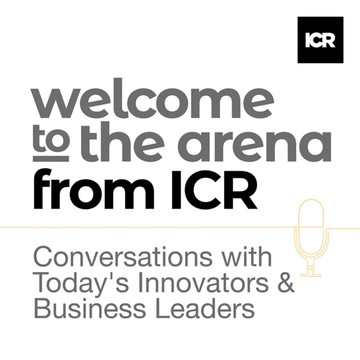
Jan 21, 2026 • 29min
Alex Faherty, CEO and Co-Founder, Faherty Brand — Coast to Curb: A family-owned clothing brand blends beach-comfort with urban-style
Alex and Mike Faherty built a clothing brand inspired by their origins as surfer kids on the Jersey shore, and their later years living in Manhattan. And even as the company has grown, they've always tried to stay true to that original vision, and the values that have made them a beloved brand for so many. Alex Faherty is the co-founder and CEO of Faherty Brand, a family-owned lifestyle apparel company. Since its founding in 2013, he and his twin-brother have built a nine-figure omnichannel business, with nearly 80 stores, a large e-commerce presence, and a robust wholesale business with partners like Nordstrom, Bloomingdale's, and numerous specialty stores across the country. Alex joins us to discuss the origins of Faherty, their plans for international expansion, and how they plan on growing while remaining authentic to who they are. Highlights:Faherty origins (1:46)Alex's PE Background (5:06)What is Faherty Brand? (7:21)Faherty Customers (8:51)Fashion Innovation (10:16)Embracing Wholesale (12:06)Faherty's Retail Strategy (14:01)Authenticity (16:35)Sustainability (18:34)Technology and AI (20:49)New Product Offerings (22:23)Competitive Landscape (24:58)10-year Vision for Faherty (26:34)Links:Alex Faherty LinkedInFaherty Brand LinkedInFaherty Brand WebsiteICR LinkedInICR TwitterICR Website Feedback:If you have questions about the show, or have a topic in mind you'd like discussed in future episodes, email our producer, joe@lowerstreet.co.

Jan 14, 2026 • 32min
Brittany Kaiser, CEO, AlphaTON Capital — A Treasury and More: TON, Telegram and the Future of Privacy
Everyone is clamouring to integrate AI into their businesses and personal lives, but our guest today is concerned that some AI companies aren't taking the necessary steps to protect personal data. Thankfully a privacy-centric option does exist, through Telegram, and today's company is helping to build it.Brittany Kaiser is the CEO of AlphaTON Capital (ATON), the world's leading technology public company scaling the Telegram super-app, with an addressable market of a billion plus monthly active users. Brittany is a globally recognized expert at the intersection of digital assets, public policy, and the capital markets. She's spent her career guiding companies and governments through technological and legislative changes. Brittany joins us today to walk us through her incredible career, demystify the Telegram ecosystem, and explain AlphaTON’s myriad strategies for value creation. Highlights:Brittany's career (2:26)The Telegram Ecosystem (4:23)What is TON? (9:21)AlphaTON's Growth Strategy (13:44)A Treasury and More (19:38)Brittany's Approach to Risk Management (20:38)Evolution of Privacy Centric AI (23:40)The AlphaTON Management Team (27:56)Links:Brittany's LinkedInAlphaTON LinkedInAlphaTON WebsiteICR LinkedInICR TwitterICR Website Feedback:If you have questions about the show, or have a topic in mind you'd like discussed in future episodes, email our producer, joe@lowerstreet.co.

Jan 7, 2026 • 27min
Tim FitzGerald, CEO, The Middleby Corporation – One-Stop Shop: How one firm's platform services all of your kitchen needs
Anyone working in the food service industry knows the importance of operating efficiently, providing a quality product, and always prioritizing customer experience. Today's company, with its impressive roster of brands, has solutions to help with all of that.Tim Fitzgerald is the CEO of the Middleby Corporation, which trades on NASDAQ under the symbol MIDD. Middleby is a worldwide manufacturer of solutions for the commercial kitchen, as well as residential, indoor, and outdoor appliances, and systems for industrial processing, packaging, and baking.Tim was named CEO in 2019. Before that, he served as Chief financial Officer, a position he held since 2003. Since joining Middleby over 25 years ago, Tim has been heavily involved in company-wide strategic decisions and has led acquisition and business development activities, which has led to their portfolio of roughly 120 brands.Today, Tim walks us through the impressive breadth of Middleby's offerings, their strategy for long-term value creation, and their ongoing commitment to innovation. Highlights:Middleby's Evolution (2:15)Spinning off Food processing (6:02)Share Buybacks (10:09)The Middleby Advantage (12:12)Commitment to Innovation (14:01)Sustainability in Kitchens (16:52)Middleby's go-to-market strategy (19:04)Food Service Trends (21:29)Opportunities on the Horizon (23:39)Links:Tim FitzGerald LinkedInMiddleby LinkedInMiddleby WebsiteICR LinkedInICR TwitterICR Website Feedback:If you have questions about the show, or have a topic in mind you'd like discussed in future episodes, email our producer, joe@lowerstreet.co.

Dec 31, 2025 • 8min
A New Year's Message from Tom
As 2025 comes to a close, Tom provides a recap of the biggest stories in business from the past year, talks about the value ICR continues to provide for clients, and looks ahead to what 2026 may have in store. Happy new year!

Dec 17, 2025 • 32min
Patrick Horsman, CIO, BNB Plus – Building a Better DAT: How one digital asset treasury is creating real value for investors
For those who might be newer to the space, Digital Asset Treasuries, or 'DATs' for short, can be a good way to start investing in crypto. Not all of these treasuries do a great job of creating value for users, but today's company uses an innovative model that includes several different strategies for yield generation.Patrick Horseman is the Chief Investment Officer at BNB Plus, a digital asset treasury company that trades under the symbol BNBX. The company unlocks institutional-grade access to the Binance ecosystem through non-directional yield strategies and long BNB exposure. Patrick has been the founder or co-founder of several hedge funds and businesses operating in the world of decentralized finance, including Coral Capital, Esoteric Strategies, and Innovation Shares. He's also the founder of Verified Organics, an Ethereum based blockchain application designed to bring transparency and accountability to the organic food production process from farm to table.Today, we get into BNB Plus' different yield generation strategies, what makes the Binance ecosystem unique, and the general state of the DAT market now that some of the initial euphoria seems to have waned.Highlights:Patrick's path into DeFi (2:15)The BNB Plus Mission (5:48)DeFi Explained (8:34)What makes Binance unique? (10:24)Patrick's BNB Optimism (14:35)BNB Plus' Yield Generation Strategies (16:14)The BNB Plus Team (22:11)Binance's potential impact in the US (24:48)The state of the DAT market (25:34)BNB Plus' approach to risk (29:15)Links:Patrick Horsman LinkedInBNB Plus LinkedInBNB Plus WebsiteICR LinkedInICR TwitterICR WebsiteFeedback:If you have questions about the show, or have a topic in mind you'd like discussed in future episodes, email our producer, joe@lowerstreet.co.

Dec 10, 2025 • 26min
Demond Martin, CEO and Co-Founder, WellWithAll – Inclusive Capitalism: Building a business that empowers communities
In this country, health outcomes are too often dictated by your ZIP code, but one company is working very hard to fix those inequities.Demond Martin, is the CEO and co-founder of WellWithAll, a health and wellness company dedicated to advancing health equity for underserved communities. Operating under ‘inclusive capitalism’, WellWithAll reinvests 20% of its profits into health initiatives tailored to specific community needs, tackling health disparities, and ensuring a targeted approach to wellness.Before WellWithAll, Demond was a senior partner at Adage Capital Management, where he invested in the consumer sector for 21 years. Earlier in his career, he served in the Clinton administration, and he has served on numerous nonprofit boards, including the Berkeley College of Music, The Dana-Farber Cancer Institute, and the Obama Foundation. Today, we get into what WellWithAll does, how they're giving back to the community, and Demond's journey from a trailer in North Carolina to CEO of this incredible company.Highlights:Demond's background (2:21)Stories from the White House (3:50)Working at a hedge fund (5:58)Lessons about investing (8:32)The origins of WellWithAll (11:42)Health inequities (13:54)How WellWithAll has evolved (15:08)Getting in with large retailers (17:08)Sources of funding (18:57)The Obama Foundation (20:19)A career in politics? (21:00)Demond's mentors (22:14)27th ICR Conference (24:04))Links:Demond Martin LinkedInWellWithAll LinkedInWellWithAll WebsiteICR LinkedInICR TwitterICR WebsiteFeedback:If you have questions about the show, or have a topic in mind you'd like discussed in future episodes, email our producer, joe@lowerstreet.co.
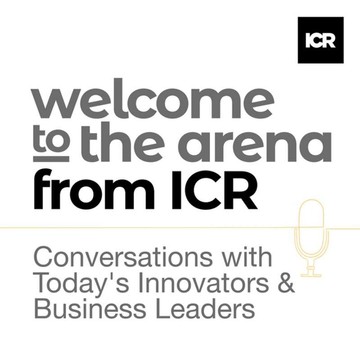
Dec 3, 2025 • 25min
Dan Galpern, CEO, DanceOne – Making Moves: What it takes to build a global dance juggernaut (Re-Broadcast)
This week, another trip down memory lane as we revisit an episode from April with Dan Galpern, the CEO of DanceOne, who's managed to harness the explosion of interest in dance, into a thriving global brand. Summary: We may not talk about them the same way we talk about basketball or baseball players, but make no mistake, dancers are elite athletes. Their training is intense, and the competition is fierce. And with Breakdancing at the Olympics, dance content flooding TikTok, and dance competition shows all over TV, there's never been more interest in the art-form. So how do you take that global phenomenon, and harness it into a global business? Dan Galpern is the CEO of DanceOne. In 2023, the company was formed out of the merger between Break The Floor Productions and Star Dance Alliance, and it has become the premier producer of educational and competitive dance events, as well as the largest family of dance brands in the world. Dan joins us to discuss DanceOne's plans for future expansion and growth, and how their global community is raising up the next generation of world-class dancers. Highlights:The origins of DanceOne (3:48)Path from investor to CEO (5:41)DanceOne infrastructure (6:46)Building the DanceOne experience (8:11)The global appeal of dance (9:20)DanceOne event offerings (10:30)Growth opportunities (11:43)The power of dance (15:29)The DanceOne community (17:52)Goals for the future (20:00)Links:Dan Galpern LinkedInDanceOne LinkedInDanceOne WebsiteICR LinkedInICR TwitterICR Website Feedback:If you have questions about the show, or have a topic in mind you'd like discussed in future episodes, email our producer, joe@lowerstreet.co.
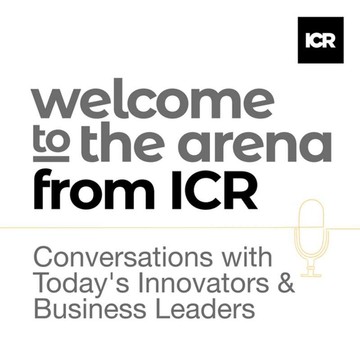
Nov 26, 2025 • 26min
Adam Goldenberg, Co-founder and CEO, Fabletics – Form Fitting: How to curate individualized retail experiences (Re-Broadcast)
This week we're once again dipping into the archive, and revisiting an episode we released in May with Adam Goldenberg, CEO and Co-Founder of Fabletics. Adam has been an entrepreneur since the age of 16, and he shares what decades of experience have taught him about building a successful brand. Summary: When you're shopping for clothes, there's a checklist of things you look for: you want them to look and feel good, you want them to last a long time, you might want them ethically and sustainably sourced, and probably most importantly, you don't want them to break the bank. In 2011 one active wear company emerged that ticked pretty much all those boxes. Adam Goldenberg is the CEO and Co-Founder of Fabletics. Adam is a seasoned entrepreneur and leader in the e-commerce industry with a proven track record of building multiple-billion dollar brands. In fact, alongside co-founder Don Ressler, Adam has generated over $10 billion dollars in sales through his company, TechStyle Fashion Group, which in addition to Fabletics, has launched other digitally-native fashion brands like Savage X Fenty, Just Fab, Fab Kids, Shoedazzle and Yitti. Adam launched his first company at 16, at 19 he became the youngest ever COO of a public company. He joins us to share his thoughts on e-commerce, customer retention, sustainability, and opportunities to grow the Fabletics brand. Highlights:Fabletics origins (2:50)Fabletics' customer base (4:48)Tech and personalization (5:55)Celebrity partnerships (7:32)Membership model (8:37)E-commerce vs. Brick and mortar retail (11:23)Amazon (13:54)Plans for growth (15:27)Sustainability (19:09)Lesson's learned (20:58)What's next for Fabletics (23:19)Links:Adam Goldenberg LinkedInFabletics LinkedInFabletics WebsiteICR LinkedInICR TwitterICR Website Feedback:If you have questions about the show, or have a topic in mind you'd like discussed in future episodes, email our producer, joe@lowerstreet.co.
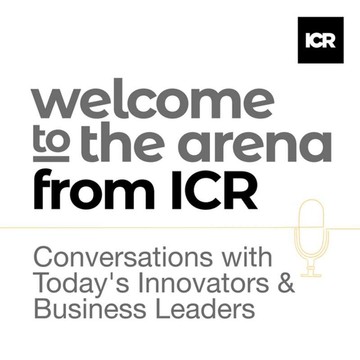
Nov 19, 2025 • 26min
Gerard Barron, CEO, The Metals Company – Depth Perception: Harvesting critical minerals from the ocean floor (Re-Broadcast)
Today, we're hopping back into the archive and revisiting an episode with Gerard Barron, the co-founder, CEO, and chairman of The Metals Company, who joined us to discuss the company’s plans to harvest critical metals off the sea floor. Summary:The Trump administration has made American reindustrialization a top priority, but to do that, the US is going to need access to an abundance of metals like copper, manganese and nickel. The challenge then is to find a way to source these materials that doesn't rely on Chinese supply chains, and won't lead to serious environmental harm.Gerard Barron is the co-founder, CEO and chairman of The Metals Company, which trades on the Nasdaq under the symbol TMC. The Metals Company mission is to harvest and process metal-containing nodules from the sea floor, providing a clean and abundant source of raw materials for an array of critical industries, like steelmaking and EV production. Gerard walks us through the evolution of TMC, their groundbreaking tech, and some recent regulatory breakthroughs that have brought them closer to achieving their goals than ever before.Highlights:The Metals Company Mission (2:07)The history of seabed harvesting (3:43)Land-based supply chains (7:17)TMC's tech (10:44)Regulatory roadblocks (12:28)Defense implications (15:51)EVs (17:37)Korea Zinc deal (19:41)Looking ahead (21:34)PE Involvement (24:22) Links:Gerard's LinkedInThe Metals Company LinkedInThe Metals Company WebsiteICR LinkedInICR TwitterICR Website Feedback:If you have questions about the show, or have a topic in mind you'd like discussed in future episodes, email our producer, Joe@lowerstreet.co.

Nov 12, 2025 • 15min
Clemens Stockreiter, Founder and CEO, RE:CIRCLE Solutions – Waste Not, Want Not: Building data-driven circular food economies
Across the United States, discarded food too often ends up just rotting in landfills. But one company in California is harnessing the power of data to make sure those valuable nutrients don't go to waste.Clemens Stockreiter is the Founder and CEO of RE:CIRCLE Solutions, a company transforming pre-consumer food byproducts into sustainable animal feed ingredients. He's spent more than two decades leading recycling and circular economy businesses, including as CEO of PreZero US and CFO of Sky Plastic Group. Today, Clemens joins us to break down how RE:CIRCLE is using science and technology to close the loop on food waste, and build data-driven circular food economies. Highlights:What does RE:CIRCLE do? (1:43)Complexity of organics recycling (2:57)RE:CIRCLE's Ontario Facility (3:59)De-packaging (4:57)California sustainability requirements (5:47)RE:CIRCLE's TraceOS system (7:19)Convincing grocers to participate (8:48)Dealing with different types of food waste (9:43)'Copy and Paste Scalability' (11:03)What's next for RE:CIRCLE? (12:37)The future of circular waste systems (13:34) Links:Clemens' LinkedInRE:CIRCLE LinkedInRE:CIRCLE WebsiteICR LinkedInICR TwitterICR Website Feedback:If you have questions about the show, or have a topic in mind you'd like discussed in future episodes, email our producer, joe@lowerstreet.co.


